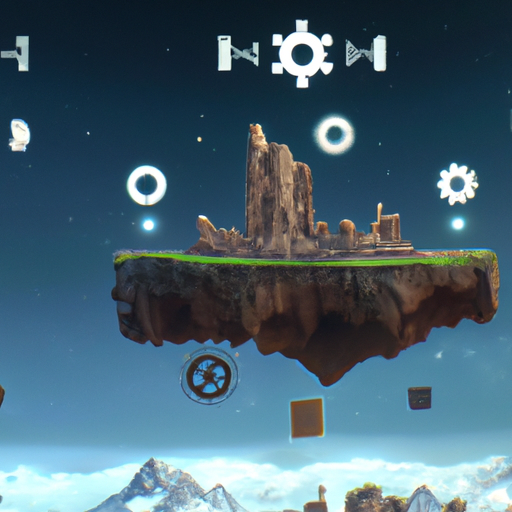Table of Contents
The Emergence of Decentralized Game Studios

With the rise of blockchain technology and the increasing popularity of decentralized finance (DeFi), a new trend is emerging in the gaming industry – decentralized game studios. These innovative studios are leveraging blockchain technology to create unique gaming experiences, empower players, and revolutionize the way games are developed and distributed. In this article, we will explore the concept of decentralized game studios, their advantages, challenges, and the impact they are having on the gaming industry.
What are Decentralized Game Studios?
Decentralized game studios are game development companies that operate on blockchain technology, utilizing smart contracts and decentralized platforms to create and distribute games. These studios are often community-driven, with players and developers collaborating to shape the gaming experience. By leveraging blockchain technology, decentralized game studios can offer unique features such as true ownership of in-game assets, transparent and secure transactions, and decentralized governance.
The Advantages of Decentralized Game Studios
- True Ownership: In decentralized games, players have true ownership of their in-game assets, which can be bought, sold, and traded on decentralized marketplaces.
- Transparency: Blockchain technology ensures that all transactions are transparent and immutable, providing players with a high level of trust and security.
- Decentralized Governance: Decentralized game studios often involve players in decision-making processes through governance tokens, allowing the community to have a say in the direction of the game.
- Monetization Opportunities: Decentralized games offer new monetization opportunities for developers and players, such as play-to-earn models where players can earn cryptocurrency by playing the game.
Challenges Faced by Decentralized Game Studios
While decentralized game studios offer many advantages, they also face several challenges that need to be addressed:
- Scalability: Blockchain technology is still in its early stages, and scalability issues can limit the number of transactions that can be processed, impacting the gaming experience.
- User Experience: Decentralized games can be complex for new users to navigate, requiring a certain level of understanding of blockchain technology.
- Regulatory Uncertainty: The regulatory environment for blockchain and cryptocurrency is constantly evolving, creating uncertainty for decentralized game studios.
Examples of Decentralized Game Studios
Several decentralized game studios have already made a significant impact on the gaming industry. One notable example is Axie Infinity, a blockchain-based game that allows players to collect, breed, and battle fantasy creatures called Axies. The game has gained a large following and has generated millions of dollars in revenue through its play-to-earn model.
Another example is Decentraland, a virtual world built on the Ethereum blockchain where players can buy, sell, and build on virtual land. Decentraland has created a thriving ecosystem of virtual experiences, events, and businesses, all powered by blockchain technology.
The Impact of Decentralized Game Studios
Decentralized game studios are reshaping the gaming industry by offering new ways for players to engage with games and empowering developers to create innovative experiences. These studios are challenging traditional gaming models by putting players at the center of the gaming experience and creating new opportunities for monetization and community engagement.
Conclusion
Decentralized game studios are at the forefront of innovation in the gaming industry, leveraging blockchain technology to create unique gaming experiences and empower players. While they face challenges such as scalability and regulatory uncertainty, the advantages they offer in terms of true ownership, transparency, and decentralized governance are driving their growth and adoption. As decentralized game studios continue to evolve, they have the potential to revolutionize the way games are developed, distributed, and played, creating a more inclusive and engaging gaming ecosystem for players around the world.